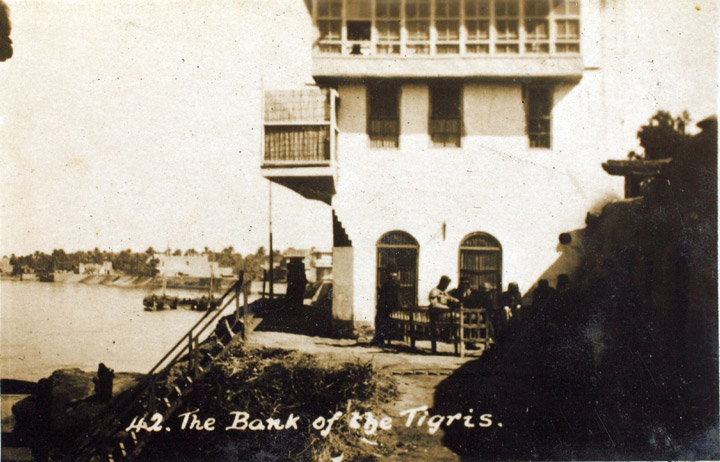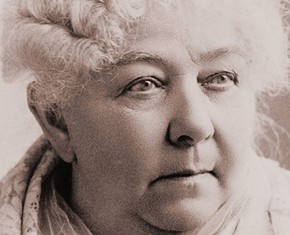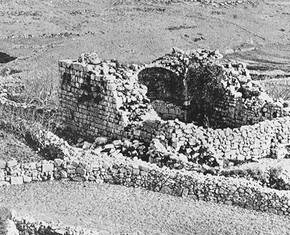The views expressed in our content reflect individual perspectives and do not represent the authoritative views of the Baha'i Faith.
When people ask me about Baha’u’llah and learn that he spent nearly forty years of his life as a prisoner and an exile, they invariably ask me, “What was He imprisoned for? He must have done something.”
If you live in a society with religious freedoms and civil rights, it can be difficult to imagine what it is like to exist in a time or place where a social standard of religious tolerance does not exist.
History shows us that whenever a messenger of God comes and begins teaching new ideas, the people invariably rise up in opposition:
Consider how all the Prophets of God were persecuted and what hardships They experienced. Jesus Christ endured affliction and accepted martyrdom upon the cross in order to summon mankind to unity and love. What sacrifice could be greater? He brought the religion of love and fellowship into the world. Shall we make use of it to create discord, violence and hatred among mankind?
Moses was persecuted and driven out into the desert, Abraham was banished, Muhammad took refuge in caves, the Bab was killed and Baha’u’llah was exiled and imprisoned forty years. Yet all of Them desired fellowship and love among men. They endured hardships, suffered persecution and death for our sakes that we might be taught to love one another and be united and affiliated instead of discordant and at variance. – Abdu’l-Baha, The Promulgation of Universal Peace, pp. 234-235.
This opposition usually originates from two sectors. First, the religious leaders see the birth of a new religion as a threat to their own. They are generally more concerned with their own status, privileges and power than with considering the spiritual truths the new messenger teaches. They also oppose the new messenger because they cannot maintain control over the population if the people begin to assert their right to control their own spiritual lives.
The second source of opposition comes from the secular powers of the day, the kings and rulers who have traditionally done their utmost to squash the birth of religions. Consider for a moment the histories of the other messengers like Christ and Moses, and recall what they had to withstand from the likes of Pharaoh and Herod Antipas during their ages.
Baha’u’llah was initially persecuted for being a supporter of the Bab – and then, when he received and revealed his own revelation, he was persecuted even more cruelly. The religious leaders and the rulers of Persia tried to destroy both emerging religions – the Babi and Baha’i Faiths – in their midst. When they publicly executed the Bab, killed tens of thousands of his followers, and imprisoned most of the rest, they thought that they had succeeded.
Eventually, after four months, Baha’u’llah was released from the Black Pit, and still without trial or recourse he was immediately banished with his family from his native land. Although he could have gone north into Russia, Baha’u’llah instead chose banishment to neighboring Iraq, which was then under the rule of the Ottoman Empire. The Persian government confiscated Baha’u’llah’s wealth and properties, and his family, including his small children, had to climb in the dead of winter through the snow-swept mountain passes between Persia and Iraq. He would never return to Persia again.
This expulsion was the beginning of forty years of exile, imprisonment and bitter persecution. Upon his arrival in Baghdad, Baha’u’llah gave priority to the needs of the community of the followers of the Bab who had fled the persecution in their homeland. With the execution of the Bab and decimation of the leadership among his followers, Baha’u’llah found the Babi community in Baghdad despondent and disorganized. Over the next ten years Baha’u’llah educated, shaped and unified the community without informing them of the revelation he had received in the Black Pit.
Steadily the fame and prestige of Baha’u’llah grew, not only among the followers of the teachings of the Bab, but among the general population of Iraq. Persian followers of the Bab began to arrive in Baghdad to seek the advice of Baha’u’llah, and then carried back encouraging letters and messages. The Islamic religious authorities of Baghdad became alarmed at the influence which this Persian exile had, and incited the Ottoman officials to remove Baha’u’llah farther away from Persia. Until he was finally ordered to leave Baghdad, Baha’u’llah continued preparing the followers of the Bab for the realization that the one whom the Bab had foretold had indeed come. Some already recognized in the character of Baha’u’llah the Promised One the Bab had written about, but they saw that the time was not right to refer openly to Baha’u’llah as the fulfillment of that prophecy.
Baha’u’llah chose the occasion of his forced departure from Baghdad to declare that he was in fact “Him Whom God shall make manifest.” Situated on the outskirts of Baghdad, across the River Tigris from the house where Baha’u’llah was held under house arrest, there was a garden where he assembled the band of followers who were going with him into exile in Constantinople, and also those who were to stay behind.

Baha’u’llah named this garden Ridvan, which means “paradise” in Arabic. Over a period of twelve days Baha’u’llah made his public declaration of his mission, and informed the people present that the prophecies and promises of the Bab were fulfilled.
Every year, this twelve-day period is commemorated during the Baha’i Festival of Ridvan, and the first, ninth and twelfth days of this festival are set aside as Holy Days. From this point forward the vast majority of the followers of the Bab turned to Baha’u’llah and became known as Baha’is. The exile which had begun when Baha’u’llah was forced to leave Tehran and which then led to Baghdad, was now set to continue to Constantinople (Istanbul), Adrianople (Edirne), and finally to the prison city of Akka in the Holy Land. Baha’u’llah consented to his lifelong imprisonment and exile in order to bring peace and unity to humanity:
Human unity or solidarity may be likened to the body, whereas unity from the breaths of the Holy Spirit is the spirit animating the body. This is a perfect unity. It creates such a condition in mankind that each one will make sacrifices for the other, and the utmost desire will be to forfeit life and all that pertains to it in behalf of another’s good. This is the unity which existed among the disciples of Jesus Christ and bound together the Prophets and holy Souls of the past. It is the unity which through the influence of the divine spirit is permeating the Baha’is so that each offers his life for the other and strives with all sincerity to attain his good pleasure. This is the unity which caused twenty thousand people in Persia to give their lives in love and devotion to it. It made the Bab the target of a thousand arrows and caused Baha’u’llah to suffer exile and imprisonment forty years. This unity is the very spirit of the body of the world. – Ibid., pp. 191-192.
This series of essays is adapted from Joseph Roy Sheppherd’s book The Elements of the Baha’i Faith, with permission from his widow Jan Sheppherd.
















Comments
Sign in or create an account
Continue with Googleor